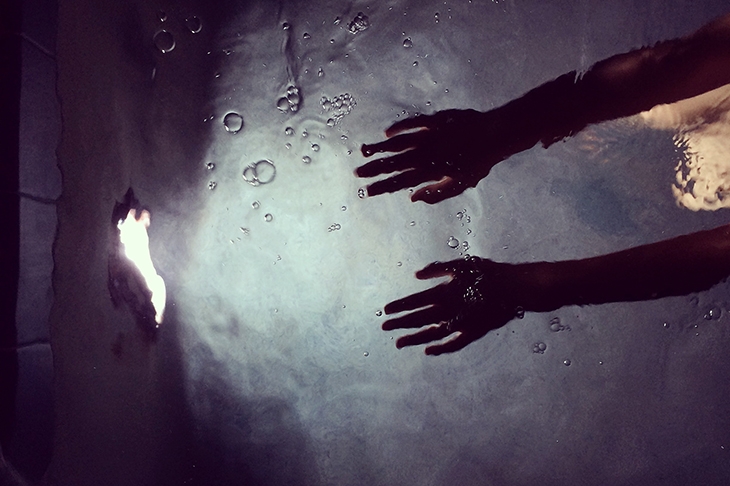Maggie is sitting alone in the park when she’s approached by Harvey, who introduces himself as a recruiter for MI5. This is the starting point of Mick Herron’s This is What Happened (John Murray, £16.99). The company Maggie works for is under investigation as a possible threat to national security. She takes on a task, to feed a virus into the company’s computer network, but during this operation she accidentally kills a security guard. Harvey places her in a safe house. No windows, a locked door, no television, no internet, no way of knowing what’s going on beyond her room. Years pass. Harvey visits now and then, telling her the country has descended into anarchy. They have sex.
This is a book that starts out as a spy thriller and then becomes something very different: a psychological game, a cruel seduction. It’s intriguing and filled with surprises, but for it to work Maggie needs to be, well, a bit thick. She needs to fall for every single thing that’s being told to her. This aspect stretches our belief. Sometimes it reads like John le Carré rewriting Alice in Wonderland. Two solitary people, each living a fantasy life, each seeking a different kind of escape. It can only end in violence.
The woman at the centre of Elizabeth Klehfoth’s All These Beautiful Strangers (Penguin, £7.99) is born of a good American family, but a family struck by tragedy: Charlie Calloway’s mother has been missing for years, presumed dead, and her father is the main suspect. But without a body nothing can ever be proved against him. Charlie has lived in doubt since her childhood. Now she’s 17, a high school student, seeking membership of a mysterious society called The A’s. The club forces students to perform a series of daring tasks in order to achieve membership. Charlie’s determination to join uncovers a surprising link to her past, to the supposed death of her mother.
Klehfoth is very good on the pressures of youth, the need to fit in versus the urge to become an individual. But the more Charlie finds out about her family, the more her present company appears superficial. The need to discover the true fate of her mother sets her on the first steps to adulthood. She is drawn back to the lake house, her childhood home, where mysteries old and new merge in the final revelations.
Ane Riel offers an even darker version of family life in Resin (Doubleday, £12.99, translated by Charlotte Barslund). The Horders live in isolation on a island. Liv was declared dead at the age of six, the result of a drowning accident. But this is a story invented by her father, Jens, in order to protect her from the wider world. Liv is alive, bound by her father’s rules and madness. The central metaphor is the preserving of insects in amber, freeing them from decay. If only Jens could do the same to a human being, to a loved one…
The story is told from several points of view, including that of Liv’s mother, who never leaves her bed, growing fatter and weaker, her flesh turning to mush. Her letters to Liv are poignant and tender, the only traces of love, and hope. Riel asks this question: what do we do when the thing which attempts to save us from harm becomes the main instrument of harm? There is no easy answer, except that life can never be stilled completely. Resin is brilliantly written and quite relentless in its search for monsters.
The Martian Girl by Andrew Martin (Corsair, £14.99) starts with Jean researching the life of Kate French, a Victorian mesmerist who performed under the stage name the Martian Girl. The other obsession in Jean’s life is a man known only as Coates, a roguish cad whose charm dissipates when Jean suspects him of killing a man and dumping his body in the Thames. This is a very London tale, inhabiting the city’s dark corners, backstreet theatres and hidden alleyways. Coates is a creature of the streets, driven only by primal urges.
The Martian Girl herself starts to take over the story, presented through chapters of Jean’s research. The mystery of the performer’s death (was she killed by her stage partner?) coincides with Coates’s evil intentions against Jean, as their affair turns nasty. This is witty, complex storytelling, learned and blunt by turns, and you never know what delights the next sentence might bring. The book is full of codes: of mindreading, of human and inhuman behaviour, of life itself, and the clues left behind by acts of violence and by acts of love. An intriguing novel, flawed, but gently so, almost as if the flaws allow the story to breathe, the people to come to life more fully.






Comments